International Harry Potter Day falls on May 2 annually. It indicates the extent to which people still love J.K. Rowling's iconic book series. Fans of Harry Potter around the world celebrate the friendship, magic, and courage of the Harry Potter world on this day.
May 2 is not just a random date. It is the day that the Battle of Hogwarts took place in the books. This was the big final battle when Harry Potter and his friends defeated Lord Voldemort and ended the Second Wizarding War.
UK Prime Minister David Cameron officially declared it in 2012 and proclaimed May 2 International Harry Potter Day. He wanted to acknowledge J.K. Rowling's work and how it inspired all people around the world.
The Battle of Hogwarts took place in 1998 at Hogwarts School. It was the last great battle between good and evil. Harry, his friends, and the Order of the Phoenix were on the side of good.
Voldemort and his Death Eaters were evil. Good won out, and Voldemort was finally defeated.
One of the fun things about being a Potterhead is creating fan theories. These are creative concepts that try to read between the lines, interpreting hidden clues, secrets, or "what ifs".
These theories continue to maintain the magic of Harry Potter. The following are ten of the most popular and intriguing fan theories, circulated through articles, social media, and fan forums globally.
Was this all in Harry Potter's head?
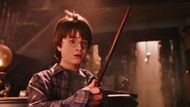
One of the most thrilling theories is that the whole Harry Potter series is a fantasy that has been written by a neglected, abused child as an escape from his unhappy reality. In this theory, Harry's magical adventures are an imaginary escape from his unhappy life with the Dursleys.
The theory is predicated on the fact that Harry's adventure starts in a cupboard under the stairs and that the magical world provides him with everything he lacks: love, friendship, and guidance.
The theory was popularized by an emotionally charged scene in Harry Potter and the Deathly Hallows, where Harry, suspended in limbo, asks Dumbledore:
“Is this real? Or has this been happening inside my head?”
Dumbledore replies:
“Of course it is happening inside your head, Harry, but why on earth should that mean that it is not real?”
Ron Weasley is a secret future-seer
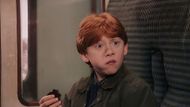
Ron Weasley is generally depicted as comic relief, but there are fans who think that he has latent Seer abilities. This is the theory that Ron is an unintentional Seer– a wizard who can predict the future.
Divination (premonition) in the books is sometimes presented as a joke. But sometimes it is revealed to be real.
Both Professor Trelawney and Dumbledore treat it seriously. Perhaps Ron's silly predictions are really concealed prophecies!
Neville Longbottom and the memory charm
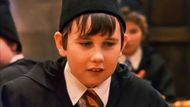
Neville Longbottom's lack of memory is a source of constant joking throughout the series, but others feel there is a sad reason for it. Under this theory, Neville's forgetfulness isn't because he's clumsy or incompetent, but rather the consequence of repeated use of the Obliviate spell to erase agonizing memories-for the most part, seeing his parents tortured by Bellatrix Lestrange.
In the event it were true, it would make Neville's subsequent heroism that much more bittersweet since he is overcome not only by external forces but by the hurt of his past as well.
Is J.K. Rowling really Rita Skeeter?

One of the more ironic and self-referential hypotheses is making J.K. Rowling herself a squib (a non-magical person born to magical parents), similar to the real-life equivalent of Rita Skeeter, the series' scandalous journalist.
This theory suggests that Rowling is revealing the wizarding world's secrets to the Muggles in her novels, as Skeeter reveals the private lives of the witches and wizards.
This theory is always quoted in a tongue-in-cheek fashion, but it highlights the fuzzy line between creator and creation, truth and fiction.
Rowling's obsessive world-building, encyclopedic knowledge of her characters, and tendency to drop enigmatic clues on social media only added fuel to speculation that she knows more than she says.
Is Dumbledore really Death?
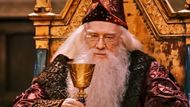
One of the most debated theories connects Albus Dumbledore with the character of Death in "The Story of the Three Brothers," a parable in The Deathly Hallows.
As per this theory, Three brothers encounter Death and each receives a magical object. One receives the Elder Wand. One receives the Resurrection Stone. One receives the Invisibility Cloak.
Fans believe the brothers are similar to Voldemort (power), Snape (loss), and Harry (wisdom). Dumbledore, who possessed all three magical objects at various times, could be similar to Death himself.
In the end, he meets Harry like an old friend after Harry dies.
This theory is also supported by narrative similarities and by Dumbledore's mysterious, omniscient presence over the course of the books.
J.K. Rowling has stated that it’s a beautiful idea, even though she didn’t confirm it as true.
Did Hogwarts make the Room of Requirement on its own?
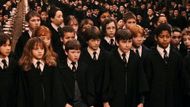
The Room of Requirement is one of Hogwarts' biggest secrets– a magical chamber that only manifests itself when needed.
Although the books imply it was constructed by one of the original founders of Hogwarts or an extremely talented wizard, there are some fan theories that the room (and perhaps other magical elements of the castle) existed as a result of a build-up of magic from centuries in the castle walls.
This theory recontextualizes magic not as something one uses but as a living, creative power with agency. It holds true to the series' depiction of Hogwarts as a character in itself, full of epiphanies and secrets even to its inhabitants.
Crookshanks: The Potters' old cat
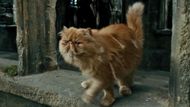
Hermione's cat, Crookshanks, is extremely clever and appears to have the sixth sense of knowing who is suspicious, such as Animagus Peter Pettigrew.
In accordance with some supporters, Crookshanks previously belonged to the Potter family and was taken from them after Voldemort's attack. This would make sense because Crookshanks trusted Sirius Black from the beginning and was aggressive towards Scabbers (Pettigrew).
Although not necessarily stated, this theory places him as part of the overall story of the history of the Potter dynasty. Rowling once said that the history of Crookshanks is bigger than life, and this has served only to breed more speculation.
Is Ginny Weasley the actual chosen one
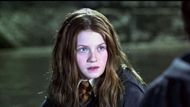
Ginny Weasley is usually overshadowed by her brothers and Harry, but some fans believe she is the real "chosen one" of the series.
According to this theory, Ginny's resilience, magical abilities, and survival of Tom Riddle's diary in The Chamber of Secrets are indications that she has a special strength and fate.
Ginny's leadership of Dumbledore's Army and her participation in the fight also indicate that she possesses a special strength and purpose.
Fan arguments are largely in favor of Ginny's understated arc. Some even question whether the prophecy about the one “the power to vanquish the Dark Lord” would have applied to her in a different situation.
Were the Malfoys secretly good?

The Malfoys are villainous throughout much of the series, but their behavior in the last books indicates deeper morality.
One hypothesis among fans is that Narcissa Malfoy's deception of Harry's death to Voldemort was not a maternal defense, but part of an undercover mission to destabilize the Dark Lord from within.
Others believe that the reluctance of Lucius Malfoy and the hesitation of Draco show that the family was never so devoted to Voldemort's cause.
This reading is supported by Rowling's own statements about the potential for redemption of the Malfoys and about the redemptive nature of love.
Snape's Patronus
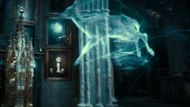
Severus Snape's doe Patronus, a duplicate of Lily Potter's, is among the most affecting of the series' discoveries. Some fans believe that the Patronus is not just a sign of unrequited love, but evidence of a deeper magical connection– maybe even a soul connection– between Snape and Lily.
The idea is that Patronuses don't only change because of love, but because of immense loss or sacrifice.
This theory confirms how rare changes in Patronuses are and the emotional stake Rowling has in them. Snape's Patronus is a symbol of enduring love and regret.
“After all this time?”
“Always.”
Love movies? Try our Box Office Game and Movie Grid Game to test your film knowledge and have some fun!
